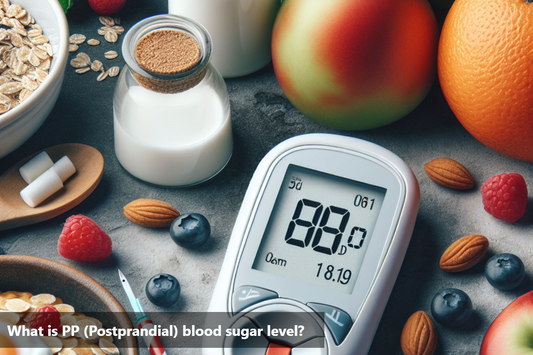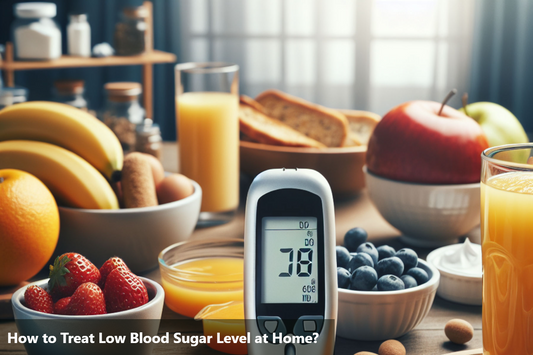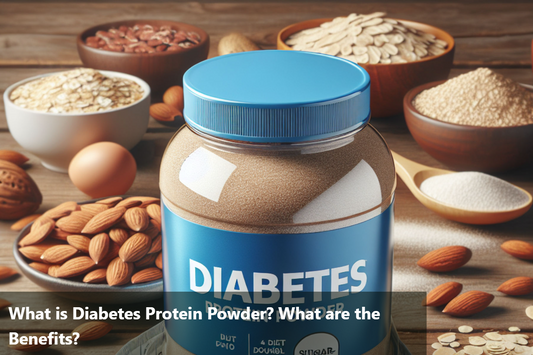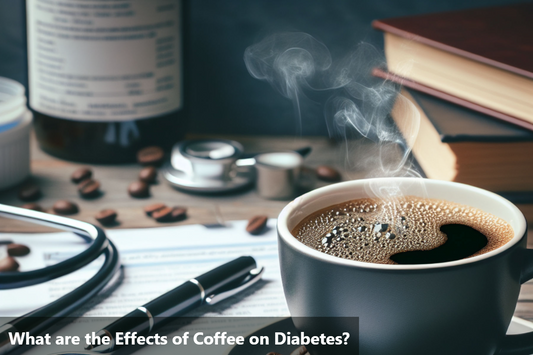Insulin resistance is a significant factor in the development of type 2 diabetes. It occurs when cells in the body do not respond effectively to insulin, leading to elevated blood sugar levels. Over time, this can result in serious health complications.
Insulin resistance typically develops due to various factors such as genetics, obesity, physical inactivity, and unhealthy eating habits. When the body's cells become resistant to insulin, the pancreas produces more insulin to compensate. This can eventually overwhelm the pancreas and lead to high blood sugar levels.
Common Symptoms of Insulin Resistance
Feeling Hungry: When you have insulin resistance, your blood sugar levels can go up and down, which might make you feel hungry soon after eating, especially if you have had a meal with lots of carbs.
Tiredness and Weakness: Even after eating, people with insulin resistance may feel tired and weak all the time because their bodies can't use glucose properly for energy.
Gaining Weight, Especially in the Belly: Insulin resistance is closely linked to gaining weight around your belly and in the fat near your abdomen. This type of fat distribution is often called central fat or being "apple-shaped."
Struggling to Lose Weight: People with insulin resistance may find it hard to lose weight, even if they change their diet and exercise more. Insulin resistance can make it tough for the body to burn fat for energy and regulate metabolism well.
Feeling Thirsty and Peeing Often: Insulin resistance can cause high blood sugar levels, leading to feeling very thirsty and needing to pee a lot as the body tries to get rid of extra glucose through urine.
Changes in Skin: People with insulin resistance may notice skin darkening, especially in skin folds and creases, known as acanthosis nigricans. This skin condition is often linked to obesity and insulin resistance.
High Blood Pressure: Insulin resistance makes you more likely to have high blood pressure, which can harm blood vessels over time and raise the risk of heart issues.
Menstrual Cycle Problems: In women, insulin resistance can affect hormone balance and cause menstrual irregularities like missed periods or problems with ovulation. It's common in conditions such as polycystic ovary syndrome (PCOS).
Higher Risks for Heart Disease: Insulin resistance often comes with other factors that raise the risk of heart disease, like high triglyceride levels, low HDL cholesterol ("good" cholesterol), and high LDL cholesterol ("bad" cholesterol).
Slow Wound Healing: When you have insulin resistance, long-term high blood sugar can make it harder for your body to heal wounds properly. Slow wound healing and frequent infections could signal underlying insulin resistance and issues with glucose metabolism.
Specific symptoms in Males and Females
Symptoms of Insulin Resistance in Men:
Belly Fat: Men with insulin resistance might get extra fat around their belly, which can raise the chances of getting metabolic syndrome and heart disease.
Low Testosterone: Insulin resistance can mess up the hormones in men, causing low testosterone levels. Signs of low testosterone may include less interest in sex, erection problems, loss of muscle, and feeling tired.
Enlarged Breasts: Sometimes, insulin resistance can throw off the hormones and lead to enlarged breasts in men.
Baldness: Some studies show a link between insulin resistance and male-pattern baldness. But it's a bit complicated and might also involve genes and hormones.
Fertility Issues: Insulin resistance and being overweight may hurt a man's chances of having kids by affecting the quality of sperm, sperm count, and hormone levels that help with reproduction.
Symptoms of Insulin Resistance in Women:
Period Problems: When women have insulin resistance, it can mess with their hormones and cause irregular periods where they might miss periods, ovulate less frequently, or have heavy or long periods.
PCOS: Polycystic ovary syndrome (PCOS) is a common issue linked to insulin resistance. It can cause irregular periods, cysts in the ovaries, and symptoms like acne, excessive hair growth, and weight gain. PCOS can affect fertility.
Skin Changes: Women with insulin resistance might notice their skin getting darker and thicker, especially in certain areas like skin folds. This is often seen in people who are obese or have metabolic problems.
Gestational Diabetes Risk: Insulin resistance boosts the chances of getting diabetes during pregnancy. Women with gestational diabetes might have high blood sugar levels, feel very thirsty, pee a lot, and have other symptoms while pregnant.
Hormone Issues: Insulin resistance can throw off the hormones in women, causing acne, oily skin, mood swings, and changes in sex drive.
Conclusions
Recognizing the key symptoms of insulin resistance is crucial for early detection and effective management. It is essential to seek medical advice promptly to address these symptoms and prevent potential complications associated with insulin resistance.
Individuals can take proactive steps towards better health by being aware of symptoms such as persistent fatigue, unexplained weight gain, and increased hunger. Women experiencing irregular menstrual cycles or noticeable facial hair growth should consider these as potential indicators of insulin resistance and consult a healthcare professional for further evaluation.
Understanding the diverse symptoms of insulin resistance, including those specific to females, empowers individuals to prioritize their health and work collaboratively with healthcare providers toward better management strategies. Remember, early intervention and professional guidance are key to addressing insulin resistance effectively.
This Blog post is an initiative by DiabeSmart, to provide accurate and Nutritionist / Doctor approved information related to Diabetes. DiabeSmart is India's first Food brand designed specifically for Diabetics, that has been clinically tested on Diabetics and Pre-Diabetics to deliver 55% - 70% lower Sugar spikes. DiabeSmart is part of Lo! Foods - India's leading brand for Everyday Functional Health foods.











